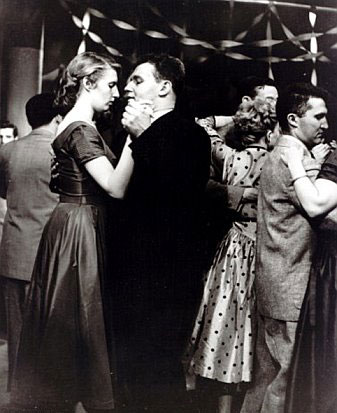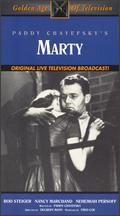I’ve been too busy to say anything about the outpouring of responses to my Wall Street Journal column about the shrinking audience for jazz in America. Much of what’s been written about “Can Jazz Be Saved?” (though not all) has been angry, and most of it misses the point.
 The latest writer to sound off is Nate Chinen, who responded in the New York Times with a piece called “Doomsayers May Be Playing Taps, but Jazz Isn’t Ready to Sing the Blues.” Chinen’s piece, though it lacks the hysterical edge of some of the recent blog postings about my column, sticks fairly closely to what has become the standard line about “Can Jazz Be Saved?” It revolves around two little words:
The latest writer to sound off is Nate Chinen, who responded in the New York Times with a piece called “Doomsayers May Be Playing Taps, but Jazz Isn’t Ready to Sing the Blues.” Chinen’s piece, though it lacks the hysterical edge of some of the recent blog postings about my column, sticks fairly closely to what has become the standard line about “Can Jazz Be Saved?” It revolves around two little words:
Mr. Teachout wasn’t the first to sound an alarm: the jazz historian Ted Gioia weighed in last month at the Web site Jazz.com. “The most likely–indeed the only plausible–explanation for these numbers is that very few new fans have discovered jazz since the 1980s,” Mr. Gioia wrote. “The old fans continue to follow the music, but teenagers and 20-somethings have very little interest in jazz.”
But there’s a wealth of anecdotal evidence to the contrary, as many jazz bloggers and commentators, responding mainly to Mr. Teachout, have been quick to point out. Try dropping in one night this week at the Village Vanguard, where Jason Moran and the Bandwagon are appearing. Or head to the Stone in the East Village, which is likely to hit sweaty capacity for each set programmed by the young drummer-composer Tyshawn Sorey. Or stop by the Highline Ballroom in Chelsea on Friday night for a show by the Bad Plus. Scratch anywhere past the surface and you might begin to wonder whether the likes of Mr. Teachout and Mr. Gioia don’t see young people listening because they don’t know where to look.
The words in question are, of course, “anecdotal evidence.” We’ve been hearing a lot of that lately. It seems that everyone who doesn’t like what Ted Gioia and I had to say went to a jazz club the other night and saw lots of young people there, which means that jazz is alive, well, and thriving. End of story.
Would that it were so simple! Alas, the trouble with Nate Chinen’s piece is that it omits another pair of words that tell a very different story: median age. To quote from my original column:
The median age of adults in America who attended a live jazz performance in 2008 was 46. In 1982 it was 29.
That’s not anecdotal evidence. It’s a finding from a survey jointly conducted by the National Endowment for the Arts and the Census Bureau, and it knocks a mile-wide hole in Chinen’s piece, as well as virtually everything else that’s been written to date about “Can Jazz Be Saved?” The fact that the median age of live jazz audiences in America has gone up by seventeen years in the course of the past quarter-century can mean only one thing: live jazz is simply not attracting enough new young listeners to replace the older ones who are staying home or dying off. Period.
As for the question of whether “the likes of Mr. Teachout and Mr. Gioia” know where to look for young jazz fans, I hasten to point out that I’ve been writing enthusiastically about the Bad Plus ever since 2003, the same length of time as Nate Chinen. I’m also a longtime fan of Medeski, Martin & Wood, another band that Chinen cites in his New York Times piece. More power to both groups, but the fact that they’re drawing young crowds is also beside the point. No amount of anecdotal evidence, however seductive it may seem at first glance, will change the fact that the overall audience for live jazz in America is growing older at an alarmingly rapid rate. Anyone who refuses to face that unpleasant fact–or to bother mentioning it in a piece that seeks to reassure its readers that jazz is in great shape–is part of the problem.
One more thing: what’s happening to jazz now was happening to classical music a decade and a half ago. That’s more or less how long it took for classical performers and presenters to admit the truth about their aging audience and start trying to do something about it. How long will it take before jazz musicians–and journalists–come to the same conclusion?
UPDATE: Says Ted Gioia:
The Times cites “anecdotal evidence” of young people attending jazz events. Meanwhile clubs, festivals, record labels, etc. are shutting down. I guess they need a new infusion of anecdotes.
No kidding.

 Last year I wrote a “Sightings”
Last year I wrote a “Sightings”  I felt at the time that Koch Vision, which released Studio One Anthology, would have done better to put out a set that cherry-picked a variety of first-rate TV dramas from the Fifties rather than concentrating on a single series. Now the Criterion Collection is planning to do just that.
I felt at the time that Koch Vision, which released Studio One Anthology, would have done better to put out a set that cherry-picked a variety of first-rate TV dramas from the Fifties rather than concentrating on a single series. Now the Criterion Collection is planning to do just that.